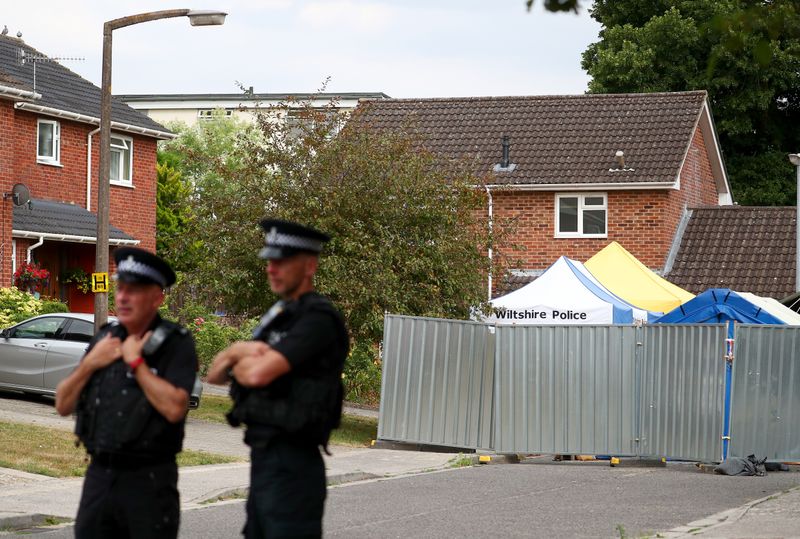LONDON (Reuters) - Britain will introduce a new law on espionage to counter the threat from potentially 'hostile' states such as Russia and China after the 2018 chemical attack on a former Russian double agent that London blamed on Russian military intelligence.
Plans for a new law were first announced by former Prime Minister Theresa May after the use of a Soviet-era chemical weapon known as Novichok against ex-spy Sergei Skripal and his daughter in the English cathedral city of Salisbury. One British citizen died in the attack.
Prime Minister Boris Johnson's government said on Thursday it would introduce legislation to give the security services the tools and powers they needed to disrupt hostile state activity.
Among the measures being considered are an update of offence definitions, a register of foreign agents, an update to the treason laws and updating the Official Secrets Acts, the government said in a briefing note accompanying a speech on its legislative agenda.
Certain offences would be applied "extraterritorially" to protect assets overseas, the government said, along the lines of rules in place in the United States and Australia.
While no state was explicitly named in the government briefing note, both Russia and China have publicly been named by British security chiefs as hostile states along with Iran and North Korea.

Britain blamed authorities in Moscow for the 2018 Salisbury attack. The Kremlin repeatedly denied any role in the attack and says the West is gripped by anti-Russian hysteria.